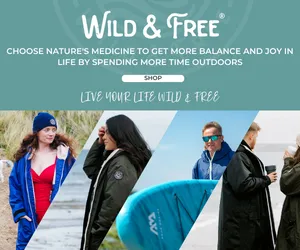
Sober socialising: Do we really need to drink to have fun?
Tired of losing your weekend to a hangover? Shelly Madden explores the sober-curious movement and why people are searching for alcohol-free alternatives.

Ever turned down a drink abroad, only to be met with: “Oh? I thought you were Irish!” We bristle and get ready to defend our proud nation only to realise that yes, the assumption we would drink them under the table was probably a safe one.
It’s no secret we rely heavily on pub culture to satiate our social needs. Sporting events go hand in hand with alcohol, as seen with the Guinness sponsorship of the Six Nations and the “full duck or no dinner”binge drinking culture associated with the GAA. And what’s the common denominator for all the major milestone events in an average Irish person’s life, from christenings to 21st birthdays to weddings to funerals? You’ve got it: the pub.
However, recent data shows the boozy tide is turning. The 2023 Healthy Ireland Survey, which represented 7,500 respondents over the age of 15, reported that the overall prevalence rate of drinking has dropped since 2018. While 70% of those surveyed drank alcohol in 2023, this was down from 75% five years ago. There was also a slight decline in binge drinking in the same period, from 27% to 24%.
The biggest drop was recorded in the 25 to 34 age group, with 72% now opting for a drink compared to 84%. This is consistent with a growing trend among young people opting to drink less, which was taking root long before the pandemic and housing crisis impacted our regular nights at the pub. Dry January has become the new Lent, with many opting to stay off the drink longer than intended. We have begun to embrace the sober-curious movement.
The search for a sober session
The sober-curious mentality invites people to be more mindful about their drinking habits and explore other options that don’t revolve around alcohol, rather than simply quitting cold turkey.
“I realised that I no longer enjoyed drinking,” says Steph Meagher. “I couldn’t manage my mental health and drink at the same time.”
Steph is the founder of Babes Without Beers, an online community that hosts sober events for Irish women as well as non-binary people and the LGBTQIA+ community. “What led me to launching the group was the loneliness that came with cutting back on drinking. I was tired of joining my friends in the pub every weekend,” she explains.
For Dr Melissa Kelly, founder of Sober Social Ireland, mental health also played a big role in her decision to revisit her relationship with alcohol. “I was using alcohol as a coping mechanism,” she says. “In sobriety, I’ve had to learn healthier ways to handle my emotions, which has been both challenging and rewarding.”
Many of us (myself included) have used alcohol as a social lubricant, which, while temporarily effective, is a slippery slope. If you rely on it to feel confident, you gloss over the reasons why you feel it’s necessary in the first place. Are you uncomfortable with the people you’re hanging around with? What parts of your personality are you trying to mask with alcohol? All of those problems will still be there (and likely worsened) in the morning.
“It’s a myth that alcohol makes you more confident,” Steph argues. “What really makes you more confident is learning to be comfortable with yourself.”
Cut the drink, not the craic
Because the drinking culture is so deeply ingrained in our national psyche, it can be extremely difficult to challenge it and play the role of outsider. You feel like you need an ‘acceptable’ reason for not drinking – if you’re not pregnant, on antibiotics, or the designated driver for the night, you run the risk of being labelled a ‘dry shite’.
Melissa agrees that the desire to quit drinking “can feel lonely, shameful, and uncertain”, which is why “having people around you who understand what you’re going through is key”.
If you’re interested in joining the sober-curious movement, groups such as Babes Without Beers and Sober Social Ireland will help you find your tribe. They offer a wide range of events that don’t have alcohol as the primary focus, from nature hikes to table quizzes and board game nights, as well as online resources and support from like-minded individuals – which sounds much nicer than an interrogation into why you chose a sparkling water over a gin and tonic.
Other communities include Roz Purcell’s The Hike Life, alcohol-free groups on Meetup, and Club Loosen, the sober rave. “I attended a Club Loosen sober rave a few weeks ago and the energy in that place was just amazing,” says Steph. “The more we have high-energy sober spaces like this, the more we can show people that you don’t need a drink to have loads of fun.”
The above article is aimed at people seeking alcohol-free alternatives in their social life. For more in-depth resources on alcohol addiction and the road to recovery, visit Alcoholics Anonymous Ireland. You might also enjoy our podcast episodes with addiction specialist Chip Somers, and Jack McGarry, an award-winning publican who has been through addiction recovery.



